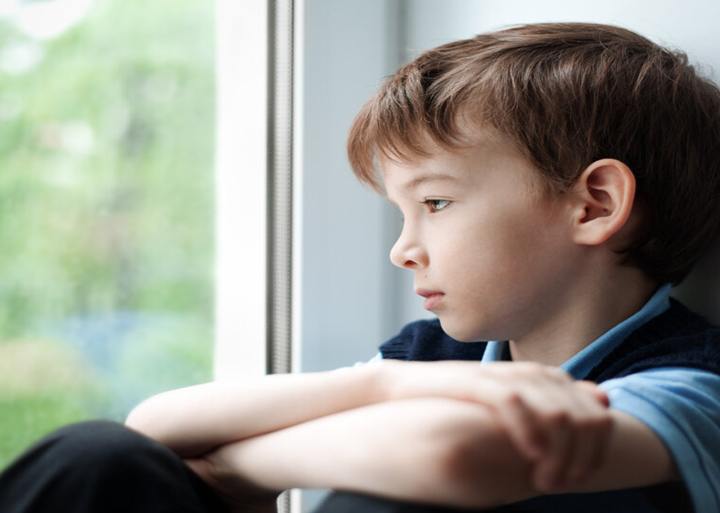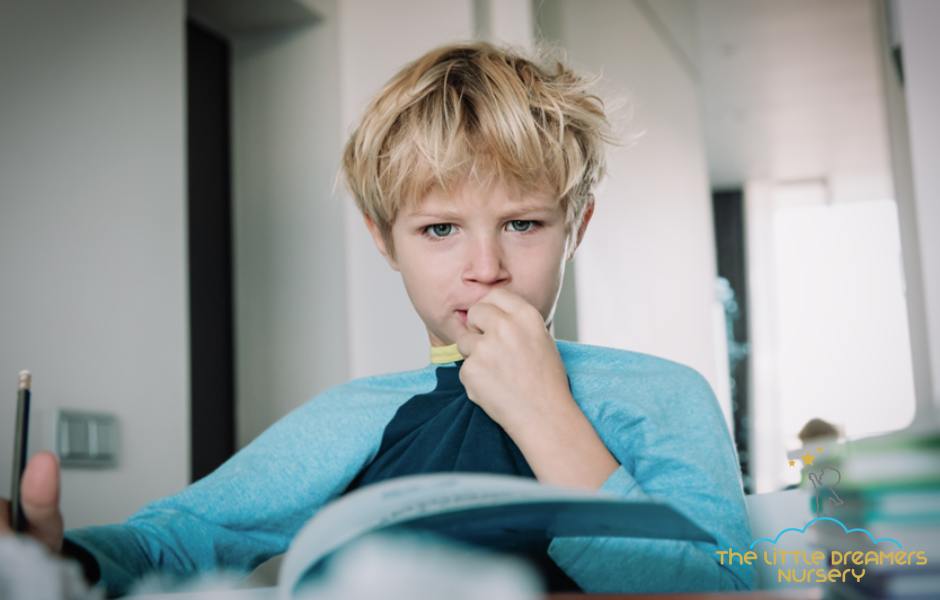In today’s stressful world, children also suffer from their feelings and thoughts. You may notice that your child becomes anxious in new or overwhelming situations. Recognizing the signs of anxiety in children can help you respond to their needs in time and support their mental health. These feelings are normal, but if ignored, they can become serious challenges. In the following, we discuss important points in this matter.
Anxiety in 3-Year-Old Symptoms
At the age of three, children are beginning to develop their social skills and independence, but they may also experience anxiety. symptoms of anxiety in children this age can manifest in various ways. One of the most common symptoms is increased clinginess to parents or caregivers. A 3-year-old may refuse to leave a parent’s side, especially in new situations or environments. other symptoms can include:
- Frequent crying or tantrums: This can occur when a child is faced with unfamiliar situations or people.
- Sleep disturbances: Issues such as difficulty falling asleep, nightmares, or waking up frequently during the night can indicate anxiety.
- Physical complaints: Children may express feelings of anxiety through physical symptoms like stomach or headaches, even if there is no medical cause.
Recognizing these symptoms of anxiety in children at this early age is crucial for helping them cope with their feelings and fostering a secure environment.

Anxiety in 4-Year-Old Symptoms
As children reach the age of four, their social awareness increases, and they may become more vocal about their feelings. However, anxiety can still be prevalent. Signs of anxiety in children at this age can include:
- Fear of separation: A 4-year-old may exhibit distress when a parent leaves, showing signs of anxiety when being dropped off at preschool or daycare.
- Avoidance behavior: If your child is consistently avoiding certain activities, such as playdates or group settings, it may indicate anxiety.
- Excessive worry: Children in this age group may begin to express worries about safety, health, or the well-being of family members. They may ask repetitive questions about what will happen in certain situations.
It’s essential for parents to be attentive to these symptoms of anxiety in children and provide reassurance and support. Encouraging open communication about fears can help children feel more secure.
Common Signs of Anxiety in Children
Regardless of age, there are several common signs of anxiety that parents should be aware of. These can include:
- Behavioral changes: A previously outgoing child may become withdrawn or irritable, showing a drastic change in behavior.
- Physical symptoms: Complaints of stomach aches, headaches, or other physical ailments can signal underlying anxiety.
- Difficulty concentrating: Children may struggle to focus on tasks or schoolwork, often due to their preoccupation with anxious thoughts.
- Sleep issues: Difficulty falling asleep, frequent nightmares, or a reluctance to go to bed can all be indicators of anxiety.
Being aware of these signs of anxiety in children can help parents identify when their child may need additional support or professional help.
Does My Child Suffer from Anxiety?
Determining whether your child suffers from anxiety can be challenging. Here are some questions to consider:
- Does your child frequently express worries about everyday situations, such as going to school or attending social events?
- Are there noticeable changes in your child’s behavior, such as increased withdrawal or irritability?
- Does your child display physical symptoms like stomach aches or headaches without a clear medical explanation?
If you find that your child’s behavior aligns with these questions and you notice consistent symptoms of anxiety in children, it may be beneficial to consult with a pediatrician or child psychologist. Early intervention can make a significant difference in helping your child manage their anxiety and develop coping strategies.
Conclusion
Recognizing the signs of anxiety in children is essential for every parent. By understanding the specific symptoms that may arise at different ages, you can provide the necessary support and reassurance your child needs. If you suspect your child is struggling with anxiety, don’t hesitate to seek professional help. With the right guidance, your child can learn to navigate their fears and thrive emotionally.







